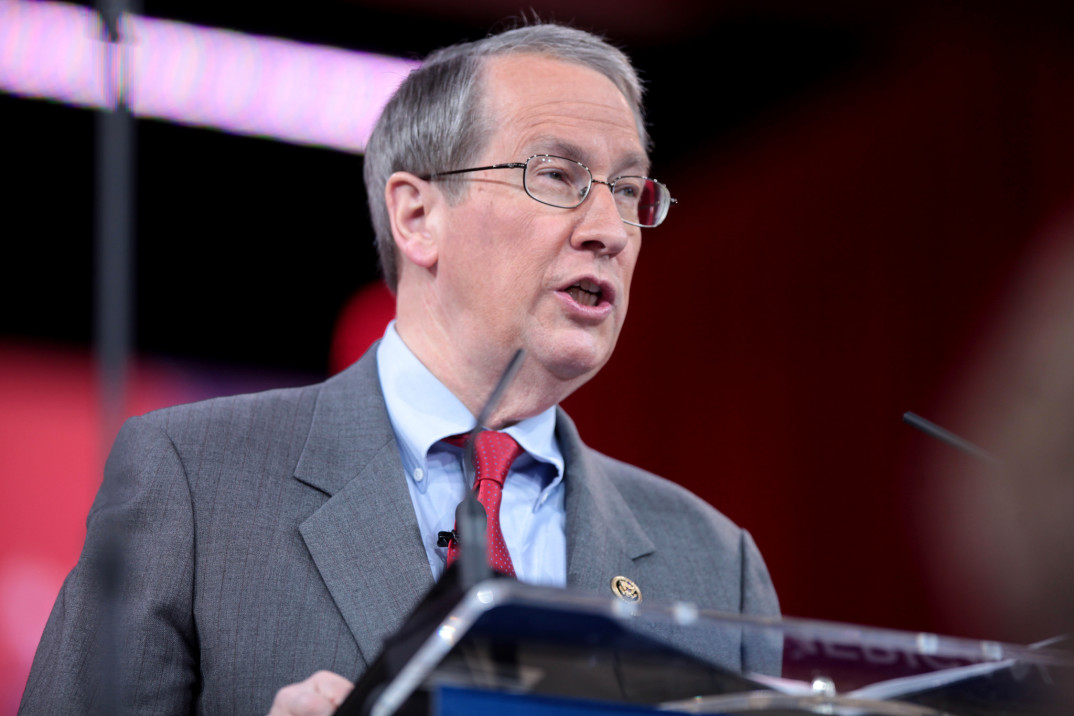A Call to Vigilance in the Fight for Congressional Ethics
As Donald Trump prepares to assume the Presidency of the United States, many have speculated on whether the candidate will be constrained by the United States’ system of checks and balances. Some, such as Newsweek’s Stacy Hilliard, have assured concerned citizens that U.S. democratic institutions will function as designed, ultimately withstanding any single leader and keeping Trump in line. Writing just days after Trump’s victory, Hilliard argued that Congress would provide the strongest check on the President, noting that, “The legislative branch’s purpose is to be the voice of the people, and it historically does not like being dictated to from the White House.” Though Trump’s policies may be worrying, she argued, Congress would act to filter out the workable from the impractical, discriminatory and unconstitutional, constraining his presidency within the bounds of a long-stable governmental system.
By most indications, last Tuesday’s events did not bode well for Hilliard’s prediction. In a late-night meeting the day before the newest Congress was to be sworn in, Republicans in the House of Representatives voted 119-74 to strip the Office of Congressional Ethics (OCE) of its independence and many of its regulatory powers. Proposed by Virginia Representative Bob Goodlatte, the measures, which were voted on without prior notice, would forbid the office from receiving anonymous information and informing the public about an investigation. Disturbingly, the rules would also place the office under direct supervision of the House Ethics Committee – a move that observers have noted would compromise the body’s independent nature and put its leadership in the hands of the politicians it was meant to investigate.
Public outrage over the move was swift, as leaders from across the political spectrum condemned the vote. Critics of the move included Jack Abramoff, the former lobbyist whose ethics violations spurred the office’s creation in the first place. In an interview with Politico, Abramoff called the move “exactly the opposite of what Congress should be doing,” pointing out that Republicans were appearing to contradict the anti-corruption promises Trump campaigned on. Trump also weighed in on Twitter, questioning whether Congress should instead focus on more pressing issues. By midday Tuesday, it appeared that these criticisms had found their mark; House Republicans later announced that they would be withdrawing their proposed changes to the office, leaving the OCE unscathed.
Despite the measure’s failure after withering public criticism, the fight over the Office of Congressional Ethics has troubling implications for how government may function under Trump. In wake of the fiasco, hopes that the GOP-led Congress could adequately check any of Trump’s unethical behavior and conflicts of interest have been dealt a significant blow. Indeed, instead of demonstrating behavior that would suggest they are willing to check the next President on unethical moves, House Republicans appear to have taken a page directly from his book. At the first possible opportunity, they have worked to hinder transparency and reduce the power of ethics oversight in the House – a move that does not bode well for those hoping the House would help correct any future unethical actions taken by the President.
If anything, the fight over the OCE has made clear that popular will must be used as a powerful check in the coming years – and not just for the President, as was often the focus of commentators during the election. If Trump fulfills experts’ worst expectations – if his administration is marred by scandal, conflicts of interest and constitutional violations – vigilance to check his actions will no doubt be needed. Yet those looking to counteract Trump must also keep their focus wide enough to hold accountable the institutions meant to provide a check on the Presidency. If the House Republicans’ actions are any indication, members of these institutions may be emboldened to act in a similarly unethical manner under the guise of our new politics. They may remain hopeful that Trump will back their efforts, or at least bet that the controversies surrounding the President will provide adequate cover for their actions to pass by unnoticed.
The chances of such circumstances coming to pass are only bolstered by Tuesday’s developments, which demonstrate a clear move to hinder transparency put forth by a government branch many hoped would provide a check on an erratic President. It has become clear that the House, at least when controlled by the current Republican bloc, may not do enough to function as such a check. When a man like Donald Trump acts as a voice of comparative reason on Congressional ethics and transparency, one must question whether our traditional checks on the President’s power will be up for the job.
If House Republicans do act as a “voice of the people,” as Hilliard argued, their attempt to cripple their own ethics oversight stands as a poor assessment of what they believe the public will accept. These assumptions must be proven wrong. It was only after public outrage – ironically, brought on in part by Trump himself – that the House Republicans backed down from their plans. As Trump takes office, this public vigilance must continue to hold both him and the individuals emboldened by his victory accountable. Doing so may not be as easy as mobilizing against a blatantly discriminatory policy or early-morning tweet. Yet countering moves like the push to shutter the OCE will ultimately be the measure of success for those looking to preserve government integrity in the years to come.





